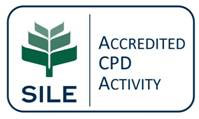Venue
Start
End
Preventing, Preparing and Responding to Pandemics: International Law Perspectives
9-11 October 2024, Wed - Fri, via Zoom, Singapore Time
Fee : S$180nett per person
Registration closed on 27 September 2024, 6pm, Singapore Time

7.5 Public CPD Points (2.5 Public CPD Points per day)
Area: International Law
Training Level: General
Participants who wish to obtain CPD Points are reminded that they must comply strictly with the Attendance Policy set out in the CPD Guidelines. For this activity, this includes logging in at the start of the webinar and logging out at the conclusion of the webinar on each day of the activity, and not being away from any part of the webinar for more than 15 minutes on each day of the activity. Participants who do not comply with the Attendance Policy on any particular day of the activity will not be able to obtain CPD Points for that day of the activity. Please refer to http://www.sileCPDcentre.sg for more information.
About the Course
 In our interconnected world, and following the Covid-19 pandemic, global health law has emerged as an important field in addressing the complex governance challenges of pandemics and other public health emergencies of international concern.
In our interconnected world, and following the Covid-19 pandemic, global health law has emerged as an important field in addressing the complex governance challenges of pandemics and other public health emergencies of international concern.
Against this background, the purpose of this course is to provide an overview of the international law which governs preparedness, prevention and response to pandemics and other public health emergencies, including recent reform initiatives at the World Health Organization and at the regional level.
At the time of the pandemic, the International Health Regulations (2005) were the only legally binding agreement on pandemic prevention and response. However, as several international reviews, including the Independent Panel on Pandemic Prevention and Response, the WHO IHR Review Committee on the Functioning of the IHR (2005) during the Covid-19 Response, and others, have concluded, the response to the pandemic was woefully inadequate, and the international legal system found to be unfit.
In response, two international legal reform processes are underway at the WHO: An IHR revision process, and negotiations on new “WHO convention, agreement or other international instrument on pandemic prevention, preparedness and response”, with final versions scheduled to be submitted to the WHO World Health Assembly in May 2024. These instruments seek to introduce equity and solidarity, including through strengthening national health systems, improving surveillance, adopting a One Health approach, and improving fair and equitable access to vaccines, including through adopting a pathogen access and benefit sharing system, and strengthening voluntary licensing and technology transfer to developing countries.
International rules on intellectual property, trade and data-sharing also affect the extent to and speed at which different states have access to live-saving medicines and vaccines. Notable international agreements are the TRIPS Agreement, the Nagoya Protocol of the Convention and Biological Diversity and the Pandemic Influenza Preparedness Framework all play a role. There are also initiatives encouraging voluntary licensing of vaccine-related intellectual property rights, such as through international patent pools or private contracting, as well as growing interest in strengthening regional and local manufacturing capacity in developing countries.
Objective of the Course
- For participants to gain an understanding of the main features of global health law and governance.
- For the participants to gain an understanding of the problem of pandemics and other public health emergencies of international concern.
- For the participants to gain an understanding of the international law and institutions which govern the prevention and response to pandemics and public health emergencies of international concern.
- For the participants to gain an understanding as to recent international legal reforms with respect to the prevention, preparation and response to pandemics and public health emergencies.
Course Outline
- Introduction to Global Health Law and Governance: The session will cover the definition, scope, and functions of global health law. It will provide an overview of legal instruments (e.g., hard, and soft law), themes (e.g., communicable diseases, non-communicable diseases) and challenges. The session will also cover the main actors and institutions comprising the global health architecture, including the World Health Organization (WHO), multi-stakeholder partnerships (e.g., COVAX) and non-governmental actors (e.g., Bill and Melinda Gates Foundation).
- The International Health Regulations: The session will cover the International Health Regulations (IHR) and their role in preventing and managing public health emergencies of international concern. The session will discuss the revisions planned to be introduced in 2024. The session will also cover national implementation of the IHR, including the role of the Joint External Evaluation (JEE).
- The Pandemic Accord: The session will cover the main features of the accord with respect to the prevention, preparedness and response to pandemics. This includes the strengthening of surveillance capacity, the strengthening of national health systems, the adoption of a One Health approach, strengthening of healthcare workforce, regulatory strengthening, compensation and liability management. It also concerns the strengthening of R&D, manufacturing capacity and access to medicines in developing countries. The accord also introduces stronger monitoring, governance and compliance mechanisms. The accord is planned to be adopted in 2024.
- Access to Medicines and Vaccines: The Role of Intellectual Property Law and Technology Transfer: Fair and equitable access to vaccines is affected by intellectual property rules and gaps in local manufacturing capacity in developing countries. This session will cover the international laws which affect access to medicines, notably the WTO TRIPS Agreement, the pandemic accord’s approach to intellectual property and technology transfer, the role of medicine patent pools, and funding or R&D private contracts.
- Access to Medicines and Vaccines: The Role of Access and Benefit Sharing Mechanisms The Nagoya Protocol, the Pandemic Accord and the PIP Framework all establish access and benefit sharing mechanisms. These mechanisms play an important role in incentivizing the sharing of pathogens towards the development of vaccines. This session will cover these access and benefit sharing mechanisms, their implementation, and potential conflicts between the respective frameworks.
- Human Rights during Pandemics and Public Health Emergencies. This session will cover the right to health and international human rights law as a framework for advancing global health (e.g., the Universal Declaration of Human Rights, the WHO Constitution) and the Principles and Guidelines on Human Rights and Public Health Emergencies.
Who should join this Course
Anyone interested in getting a better understating of the international laws which apply and regulate the response to pandemics and other international public health emergencies. Lawyers or non-lawyers are welcome.
Course Dates & Programme
9 Oct 2024, Wed, 3pm - 6.15pm, Singapore Time
Session 1. Introduction to Global Health Law & Governance
Session 2. The International Health Regulations
10 Oct 2024, Thu, 3pm - 6.15pm, Singapore Time
Session 3. The Pandemic Accord
Session 4. Access to Vaccines and Medicines ((IP and Technology Transfer)
11 Oct 2024, Fri, 2pm - 5.15pm, Singapore Time
Session 5. Human Rights during Pandemics and Public Health Emergencies
Session 6. Access to Medicines and Vaccines: The Role of Access and Benefit Sharing Mechanisms
Trainers
Dr. Ayelet Berman
Lead of Global Health Law and Governance Program at CIL
Prof. Gian Luca Burci
Global Health Centre, Graduate Institute of International Studies, Geneva
Ex-Legal Counsel of the World Health Organization
Kashish Aneja
O’Neill Institute for National and Global Health Law, Georgetown University
Dr. Adam Strobeyko
Global Health Centre, Graduate Institute of International Studies, Geneva
Postdoctoral researcher for the Governing Pandemics initiative
Prof. Roojin Habibi
University of Ottawa
Member of the IHR Review Committee

